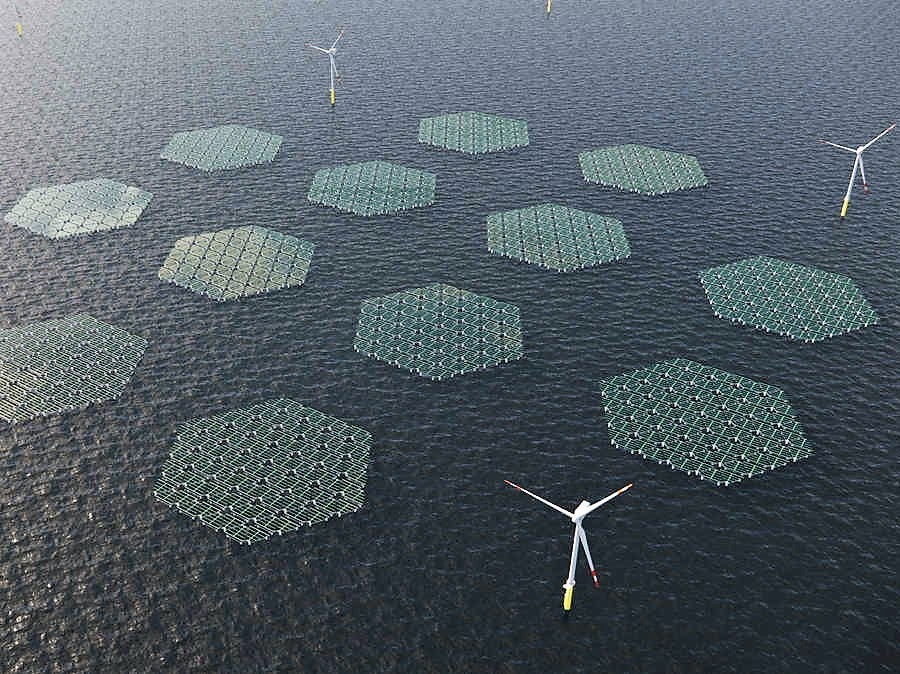‘Floating solar parks’ to be trialled in North Sea
Solar panels linked together will ride waves ‘like a carpet’, says German energy firm

Your support helps us to tell the story
From reproductive rights to climate change to Big Tech, The Independent is on the ground when the story is developing. Whether it's investigating the financials of Elon Musk's pro-Trump PAC or producing our latest documentary, 'The A Word', which shines a light on the American women fighting for reproductive rights, we know how important it is to parse out the facts from the messaging.
At such a critical moment in US history, we need reporters on the ground. Your donation allows us to keep sending journalists to speak to both sides of the story.
The Independent is trusted by Americans across the entire political spectrum. And unlike many other quality news outlets, we choose not to lock Americans out of our reporting and analysis with paywalls. We believe quality journalism should be available to everyone, paid for by those who can afford it.
Your support makes all the difference.Offshore wind farms in the North Sea will soon be supplemented by “floating solar parks” under a new plan to boost renewable energy in Europe and reduce reliance on Russian gas.
Dutch/Norwegian startup SolarDuck partnered with German energy firm RWE for the project, which will see a pilot installation placed in the sea off the coast of Ostend in Belgium.
Arrays of solar panels will utilise the same undersea cables that carry electricity generated by wind turbines ashore, meaning complex infrastructure is not required to set them up.
“The need for secure, sustainable and affordable energy demands new and immediate answers from the industry in Europe and also globally,” said SolarDuck CEO Koen Burgers.
“Showcasing SolarDuck’s robust technology in rough North Sea conditions will enable us to deploy the technology practically anywhere in the world.”
The solar park will see photovoltaic panels linked together, floating several metres above the water to ride waves “like a carpet”.
The pilot will have a capacity of 0.5MW by next year, with hopes that further commercialisation of the technology will continue from 2023 onwards.
RWE said the project provided an answer to increasing land scarcity for the generation of renewable energy, and said it will provide a blueprint for future combined wind and solar offshore facilities.
“RWE is constantly looking for innovative ways to further improve the production of renewable energy offshore,” said Sven Utermöhlen, CEO of Wind Offshore at RWE Renewables.
“For countries with lower mean wind speeds but high solar irradiation, this opens up attractive opportunities... We want to contribute to accelerate the energy transition, have a positive impact on marine ecology and help to integrate energy systems.”

Join our commenting forum
Join thought-provoking conversations, follow other Independent readers and see their replies
Comments